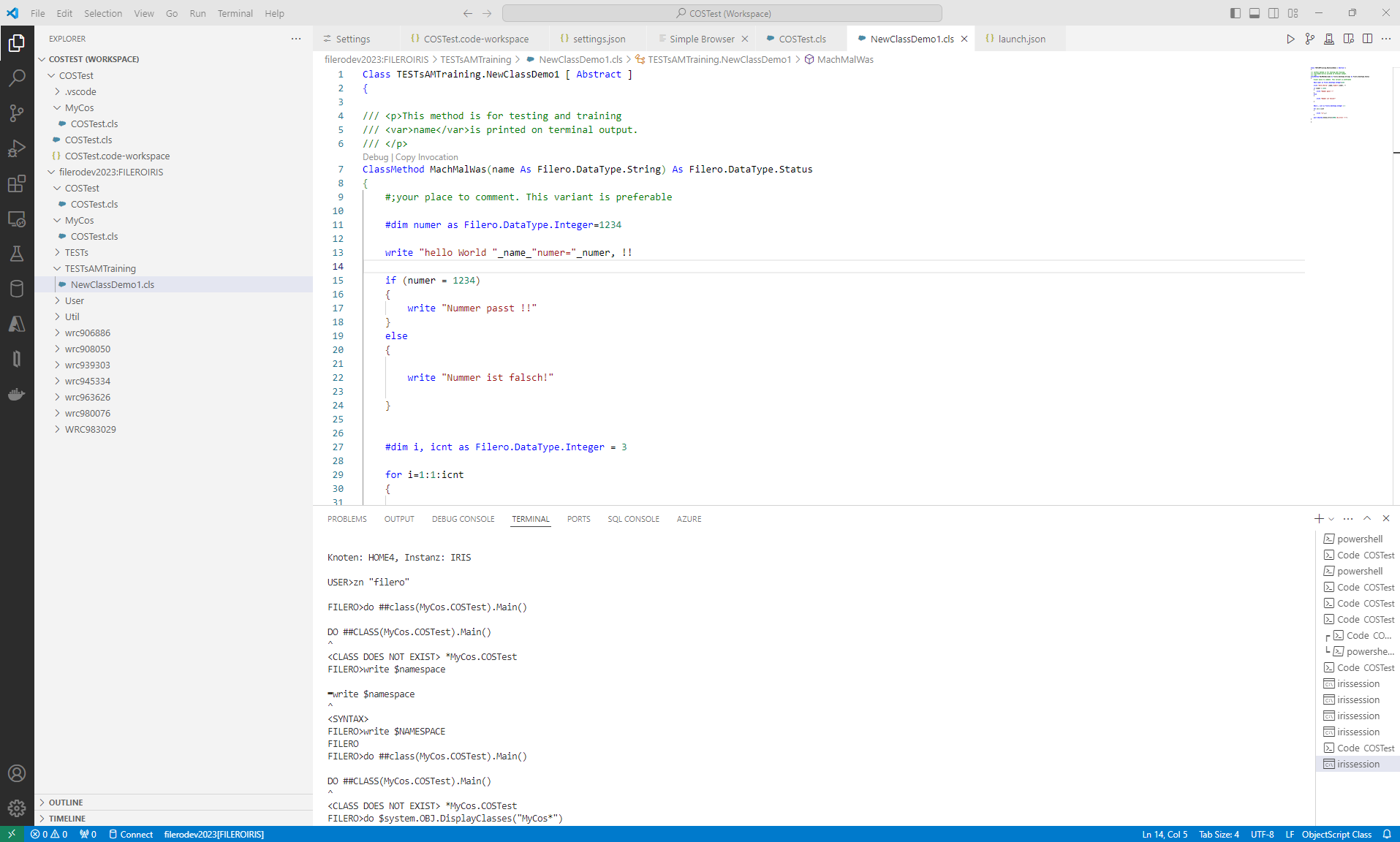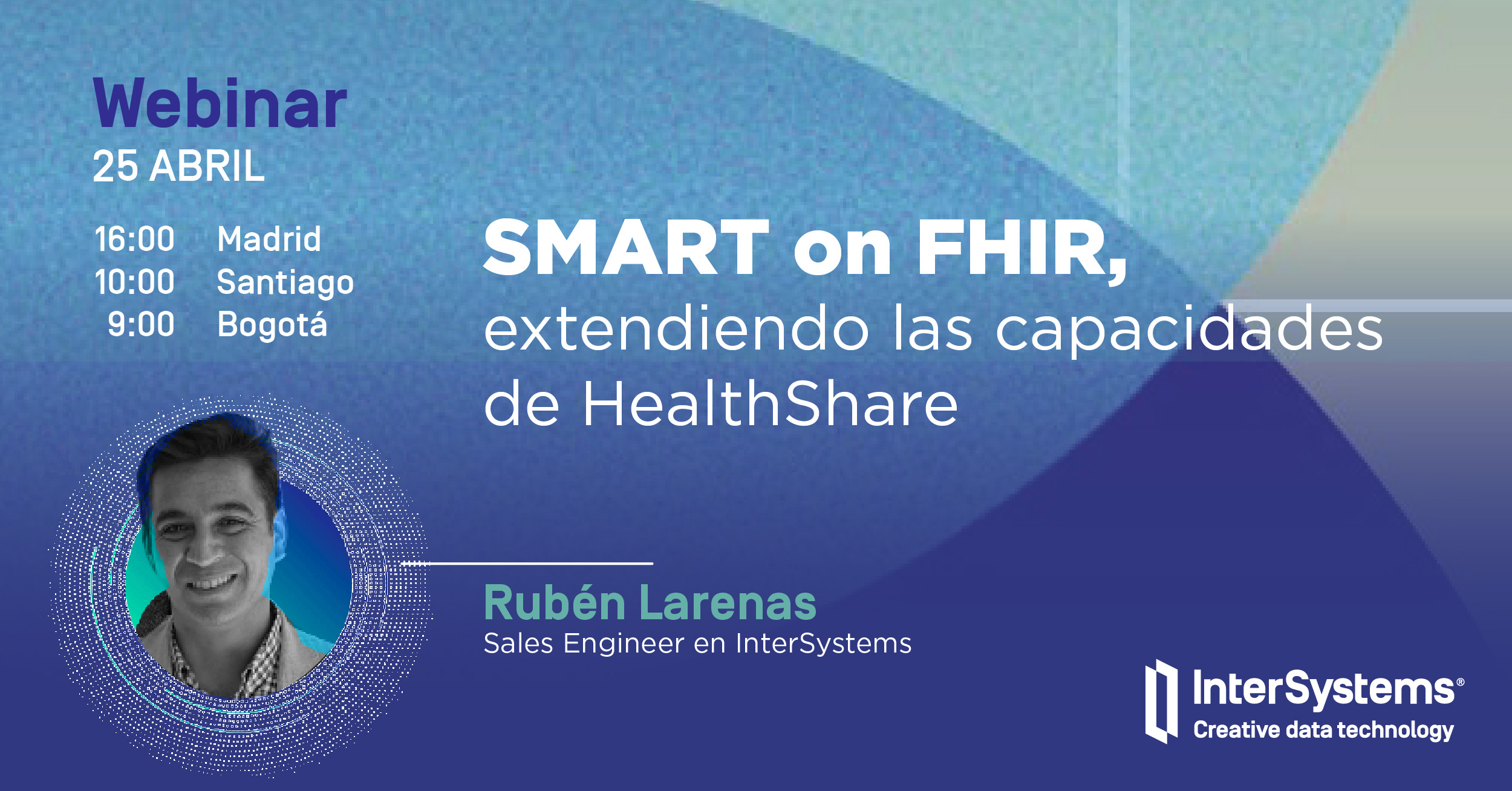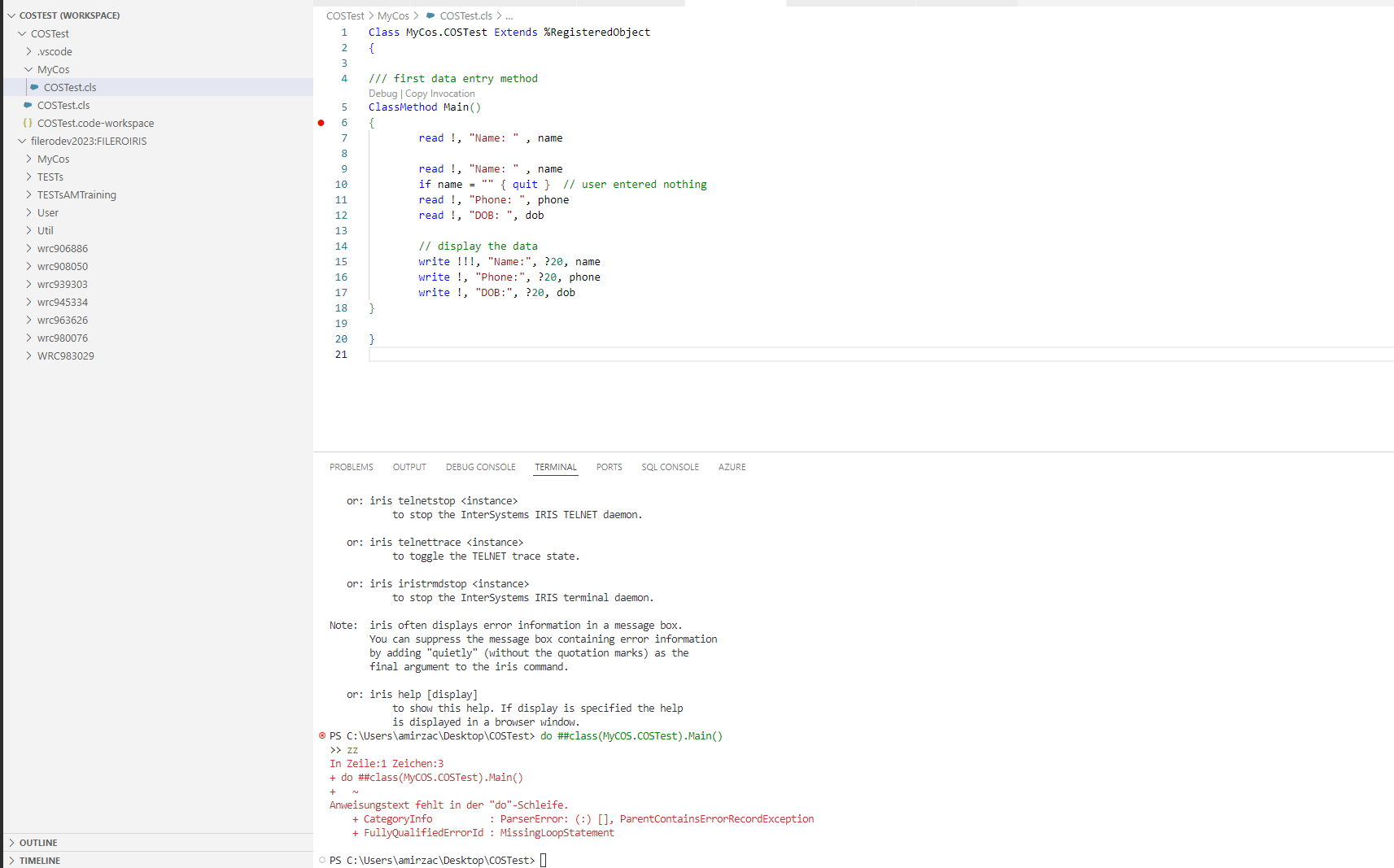Hi,
i have this simple json structure:
{
"nTypeTrigger": "ATR",
"sDate": "2024-04-17 15:29:16",
"tRefArray": [{"sID":"132"},{"sID":"151"},{"sID":"233"}],
"tCountries": []
}
I can't find an example to iterate on tRefArray.
I've tried to create a secondary iterator but it doesn't work. Here is my current code:
// extract json content from the request:
set dynRequestJsonPayload = {}.%FromJSON(%request.Content)
set JsonIterator = dynRequestJsonPayload.%GetIterator()
// iterate on json structure:
if dynRequestJsonPayload '= "" {
while JsonIterator.%GetNext(.key, .
.png)
 Hello all, i am new to IRIS in combination with VSCode, can anyone guide why this error appears ? Any suggestions are welcome. Thank you in advance.
Hello all, i am new to IRIS in combination with VSCode, can anyone guide why this error appears ? Any suggestions are welcome. Thank you in advance.
.png)
.png)
.png)

